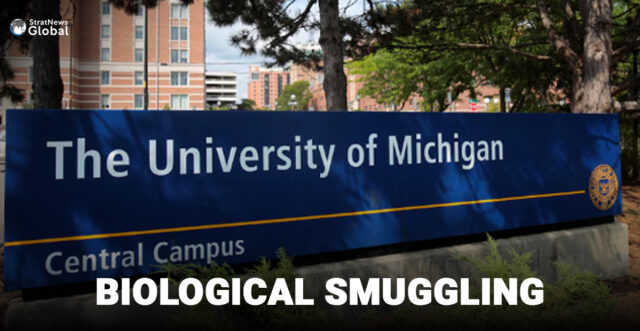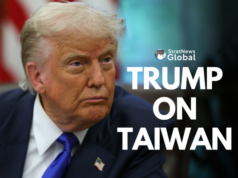U.S. federal authorities have arrested Chengxuan Han, a Chinese doctoral student from Huazhong University of Science and Technology in Wuhan, for allegedly smuggling biological materials into the United States and providing false information to federal agents.
Han’s case marks the third incident in just one week involving Chinese nationals and laboratories associated with the University of Michigan.
Han arrived at Detroit Metropolitan Airport on June 8 under a J1 visa.
Before her arrival, she had shipped four packages from China to individuals linked with a University of Michigan laboratory between 2024 and 2025.
The packages contained undeclared biological substances related to roundworms—details she admitted during questioning by federal officials.
Packages’ Contents ‘Misrepresented’
Customs agents say Han misrepresented the packages’ contents and intent.
Additionally, a forensic review revealed that data had been erased from her electronic devices just three days before her arrival, raising suspicions of deliberate concealment.
During a follow-up interview with the Federal Bureau of Investigation (FBI) and Homeland Security Investigations agents, Han admitted to both the shipments and the false statements.
Her arrest follows the June 3 indictment of Yunqing Jian and her partner Zunyong Liu.
Liu was caught smuggling Fusarium graminearum, a genetically modified fungal pathogen, considered a potential agroterrorism threat, while Jian was arrested for her role in the research.
Biological Smuggling Into US
Recent arrests have drawn attention to a troubling pattern involving the smuggling of biological materials into the United States by Chinese university students.
In several high-profile cases, students affiliated with Chinese institutions have been caught importing undeclared or concealed biological agents for research use in American laboratories, raising concerns over national security, academic integrity, and bioethical standards.
These incidents highlight vulnerabilities in the oversight of academic research exchanges and international collaboration. U.S. agencies are now tightening scrutiny at ports of entry and working closely with universities to safeguard against potential misuse of sensitive biological materials.





